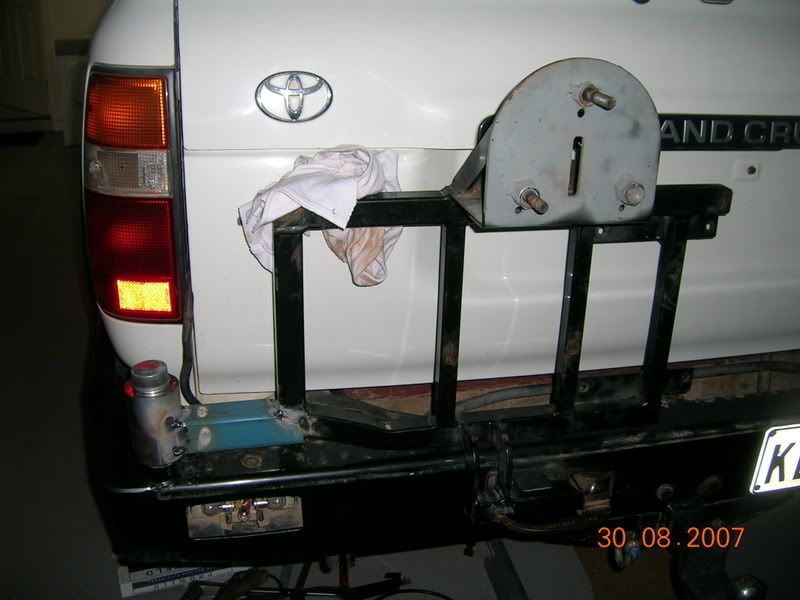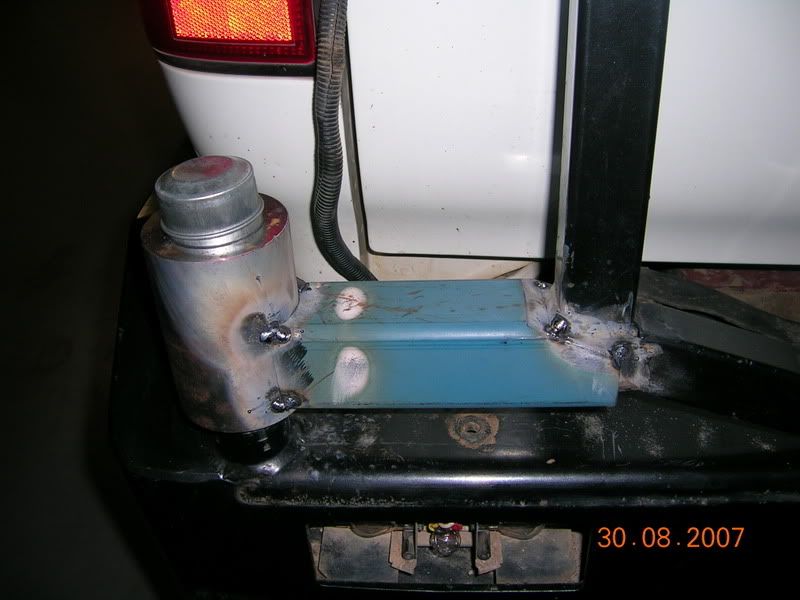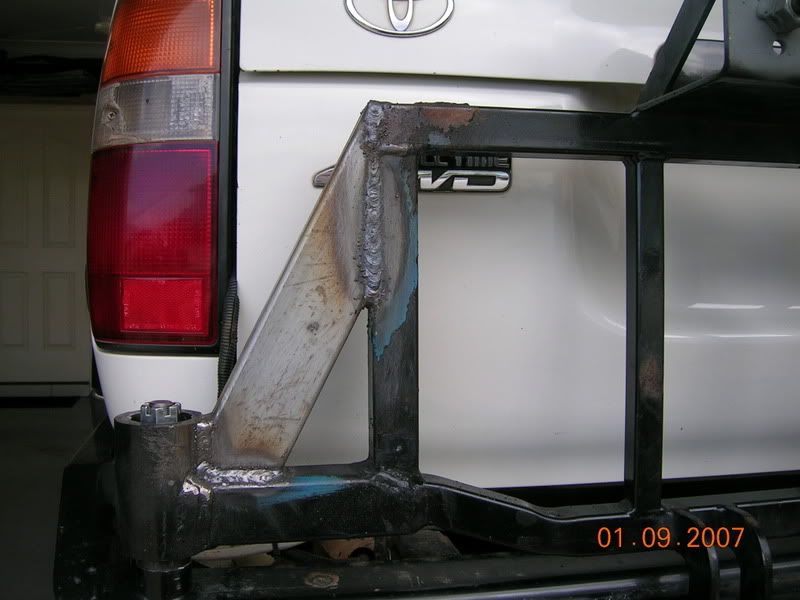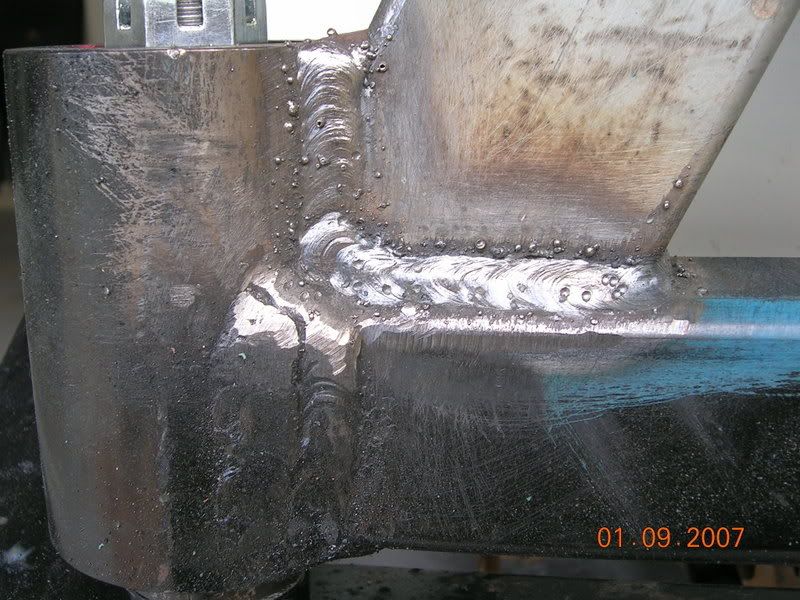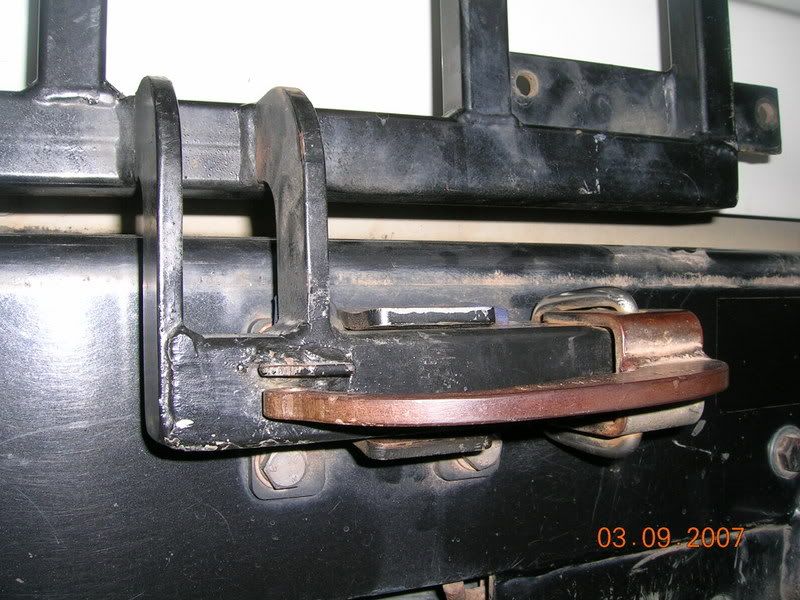brooksy wrote:Everything looks fine to me Kev. I can only see the weak point being the actual wheel bracket, everything below that has plenty of vertical bracing & the overcentre clamp used is very sturdy.
brooksy
Im not worried about the rest of the carrier, they are mass produced & have stood the test of time & haven't heard of any reports of failure.
44-40 wrote:Gday,
From a boilermakers point of view Ill give you a couple of tips,
1. Dont chip off the slag with the pointy end of your chipping hammer unless you really have to, run the blade end in from the side after it cools a bit. (your welds look nearly good enough to do without a chipping hammer, just a scrape to get the spatter off)
2. Possibly drop your amps a bit.
3. Keep practicing mate, Ive seen boilermakers do worse jobs than that, good effort.
4. If you can, enrol in a TAFE course, with a few pointers from the right person, there will be no holding you back.
Id trust it on the back of my car ( the new bit that is)
Cheers
Cheers mate, yeah the flux comes off easily. Kind of like the pointy end though. Probably a good idea though.
me3@neuralfibre.com wrote:I notice many people using stub axles and wheel bearings to set these up. A bush would be far stronger than a tapered roller in a static non rolling situation. Is there a reason for not using a nylon (or other material) bush?
Thanx
Paul
I think a bush especially nylon would flog out quickly, the old shaft was steel on steel & was worn quite a bit. I like the idea of just changing cheap bearings when ever needed.
zagan wrote:
might not be that bad up there, but I was on a forest track and wasn't quite expecting it to be so bad that's all.
Ask any one that has done a trip to the Cape when the roads are bad, ive seen many broken springs & even diff housings. My father refuses to do that trip again it was that bad.
GXL Turbo Diesel 80 series- 6" King springs + Rancho in-cab kit- 35" BFG Muds Twin ARB airlockers.
